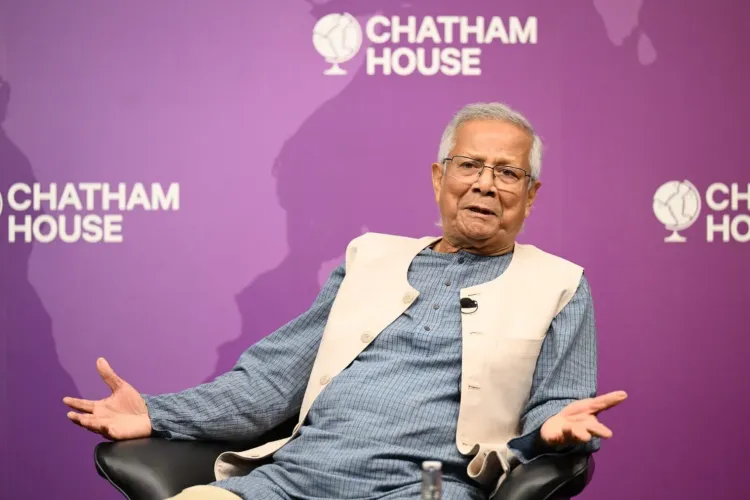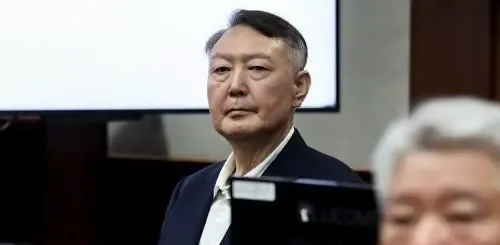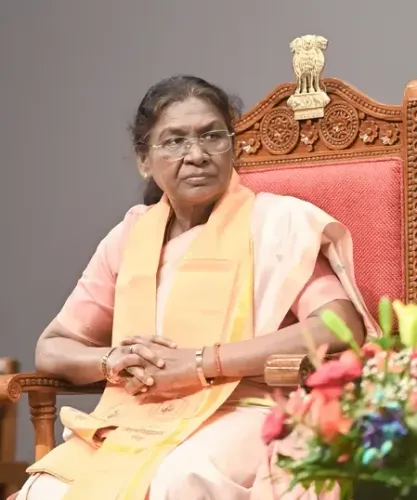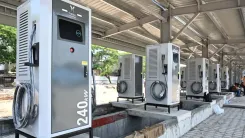Why is Muhammad Yunus Clinging to Power?

Synopsis
Key Takeaways
- Yunus's popularity is declining amid political crises.
- The interim government is criticized for unconstitutional amendments.
- Press freedom in Bangladesh is severely compromised.
- Concerns arise over the postponement of national elections.
- Political parties demand immediate elections to restore democracy.
Dhaka: The popularity of Muhammad Yunus is declining as the interim government encounters a multitude of crises, with the political climate in Bangladesh growing more intricate. June signifies the 10th month since Yunus took the helm as the Chief Advisor of the interim government — a body formed through consensus among political parties, civil society, and the military after the ousting of Sheikh Hasina. Initially, it was anticipated that the interim government would have a brief tenure, akin to past caretaker administrations, with its primary duties focused on efficient management of state affairs and ensuring free and fair elections. However, the Yunus administration has not only failed to achieve these objectives but has also shifted its focus towards broader state reforms through the establishment of various reform commissions.
Yunus's policies have intensified the challenges faced by the interim government amid the turmoil that has engulfed the nation since August 5 of last year. Despite this, Yunus seems to be swimming against the tide of the country’s political will. This scenario raises a critical question: why is Muhammad Yunus still in office?
Several recent developments support this notion. For instance, the enactment of amendments deemed unconstitutional has occurred through the passing of ordinances like the Cyber Protection Ordinance, adjustments to the International Crimes (Tribunals) Act, the Anti-Terrorism Act, and the Enforced Law Ordinance. These ordinances have been criticized for their unilateral passage without public consultation, reflecting Yunus’s apparent political agenda, particularly the marginalization of the Awami League. Two significant developments further bolster this perception: the deteriorating state of press freedom in Bangladesh and the imposed ban on the Awami League.
The Cyber Protection Ordinance, which replaced the stringent Cyber Security Act, was introduced by the interim government with the supposed goal of fortifying cyber security. This occurred in the backdrop of significantly eroded press freedom under the previous administration. However, the new ordinance has shown a similar trend of suppressing press freedom, evidenced by condemnation from rights groups over the revocation of press credentials for journalists.
The targeted harassment of journalists critical of Yunus and the interim government, as reported by the Rights and Risk Analysis Group (RRAG), paints a troubling picture — around 640 journalists have been targeted over the past eight months, with 91 reportedly harassed or assaulted in May alone. The charging of journalists with terrorism-related offenses has been widely criticized as a deliberate attempt by the interim government to curtail press freedom. Contrary to expectations for restored free speech following the July uprising, press freedom continues to be a pressing concern, as highlighted by the latest global ranking from international human rights organization Article 19, which categorized Bangladesh as a 'crisis' country for freedom of expression.
The amendment to the Anti-Terrorism Act, sanctioned on May 11, introduced provisions allowing the prohibition of terrorism-related activities by individuals and 'entities'. Concerns have emerged that this ordinance grants the interim government unchecked authority to suppress political activities, particularly following its ban on Awami League activities under pressure from certain political factions. Just a day after the ordinance's enactment, the Awami League was officially dissolved — another unilateral action taken without public consultation. While welcomed by parties that had mobilized on the streets for this outcome, Yunus’s decision has drawn significant international criticism and exacerbated domestic political divisions, with many perceiving it as a breach of democratic norms executed without due process. The politically driven violence targeting League supporters since Hasina's departure is well-documented, and the ban is seen as a further escalation of such acts under a guise of impunity. These unconstitutional legal interventions have been rightly identified as the interim government's erosion of the country’s fundamental human rights and freedoms.
Muhammad Yunus’s proposal in April to create a humanitarian corridor linking to Myanmar's Rakhine region marks yet another instance of misjudgment by his administration. What sets this issue apart from prior ones is the rare, unified opposition it encountered from all political parties — both established and emerging — arguably the first instance of such consensus since Hasina's ousting. On one side, concerns were voiced regarding the geopolitical risks this corridor posed to Bangladesh’s territorial integrity; on the flip side, criticisms were directed at the interim government's unilateral move to propose such an initiative — despite lacking the mandate — without consulting political factions. The proposal also raised suspicions that Yunus was favoring foreign interests at the expense of national sovereignty. Not only did political parties object, but the Bangladesh Army also expressed disapproval, further underscoring the growing tensions with the interim government. The Army Chief firmly dismissed the idea of any such 'bloody corridor' and urged Yunus to conduct elections by December, leading to the ultimate withdrawal of the proposal by the interim government.
The election issue has surfaced as the most contentious point against the Yunus administration. The deliberate postponement of the national election has not only deepened divisions among political factions but has also impeded meaningful progress in the state-building process. Although the interim government initially announced that national elections could take place by December 2025, the subsequent extension of this timeline to June 2026 has ignited suspicions and fears that Yunus is intentionally trying to cling to power. The lack of a clear electoral roadmap — despite repeated requests from political parties — has heightened concerns that the interim government may further delay elections into the following winter. The political impartiality of the interim administration is increasingly under scrutiny, with many perceiving Yunus as favoring the newly formed National Citizen’s Party (NCP), and suspecting that the election postponement is a calculated strategy to provide the NCP with a strategic advantage in the upcoming vote.
However, the broad consensus among political parties on the urgency of conducting early elections — despite their ideological differences — indicates a significant shift in the political landscape: time seems to be running out for Muhammad Yunus. The current political climate sharply contrasts with last August, when Yunus was invited to lead the interim government. The people of Bangladesh are now demanding elections, eager to exercise their democratic rights and facilitate a seamless political transition. It appears that the Chief Advisor has become too accustomed to the authority he possesses and is now making desperate attempts to maintain his office.









